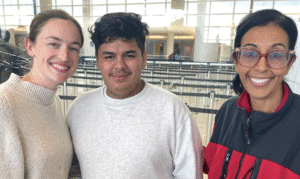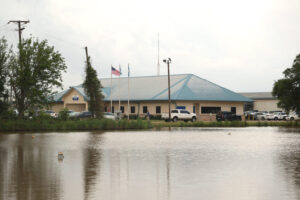Normally, the start of a new year is a time of optimism and hope. This year, many in the Bahamas are awaiting December 31 with dread thanks to Prime Minister Hubert Minnis’ declaration that migrants in an irregular status are to leave the country by that day or face aggressive deportation.
Since Minnis’ October 11 declaration, immigration authorities have conducted multiple raids on individuals perceived to be migrants in irregular status, many of them Haitians or of Haitian descent. They have detained and deported families, some with young children born in the Bahamas, have been detained. Many of those children have the right to apply for Bahamian nationality when they turn 18. Reports have emerged of adults born in the Bahamas to Haitian parents being detained and sent to Haiti. The whereabouts of some like Jean Rony Jean-Charles remain unknown.
Only days before the December 31 deadline, there are no clear procedures in place to protect asylees, refugees, or those with a right to Bahamian nationality from deportation. Earlier this month, Robert F. Kennedy Human Rights and other international organizations called for the Bahamian government to share a human rights-based migration policy that complies with international human rights standards.
For women especially, the Bahamas is no paradise. Dubravka Šimonović, the United Nations Special Rapporteur on Violence Against Women, who recently visited the country, concluded that “violence against women is hidden, denied, and even more worryingly, accepted as normal.” Šimonović pointed to legal “shortcomings” including constitutional provisions that discriminate based on gender for passage of citizenship, which Bahamians voted to maintain in 2002 and again in 2016. She also notes the legality of marital rape, which Ms. Šimonović identified as the country’s most pressing issue. Young women between the ages of 16-18 are the most vulnerable demographic in Bahamian society.
The Prime Minister’s December 31 threat is only the most recent example of the xenophobic attitudes underlying many Bahamian policies. Robert F. Kennedy Human Rights and the Caribbean Institute of Human Rights requested protective measures on behalf of detainees at Carmichael Road Detention Center to safeguard their lives after learning that detainees were subject to overcrowding, poor sanitation, inadequate food and water, and an absence of medical attention or legal assistance. In 2015, the Inter-American Commission on Human Rights (IACHR) granted these measures, which remain in force and are even more important as the Government’s deadline approaches and more people are held in immigration detention.
Local human rights defenders in the Bahamas are tireless in their efforts to document and broadcast human rights abuses and provide legal assistance to victims. In October, Rights Bahamas and Robert F. Kennedy Human Rights held a civil society human rights workshop where local advocates identified women’s rights and migrants’ rights as the two most pressing issues in the Bahamas. Their work sets out a roadmap of advocacy, including hearings before the IACHR, local coalition building, and education programs. Together, we will continue this work in 2018 to ensure that all people in the Bahamas will have their human rights recognized and respected.
Only then will it truly be a joyful and prosperous new year.




